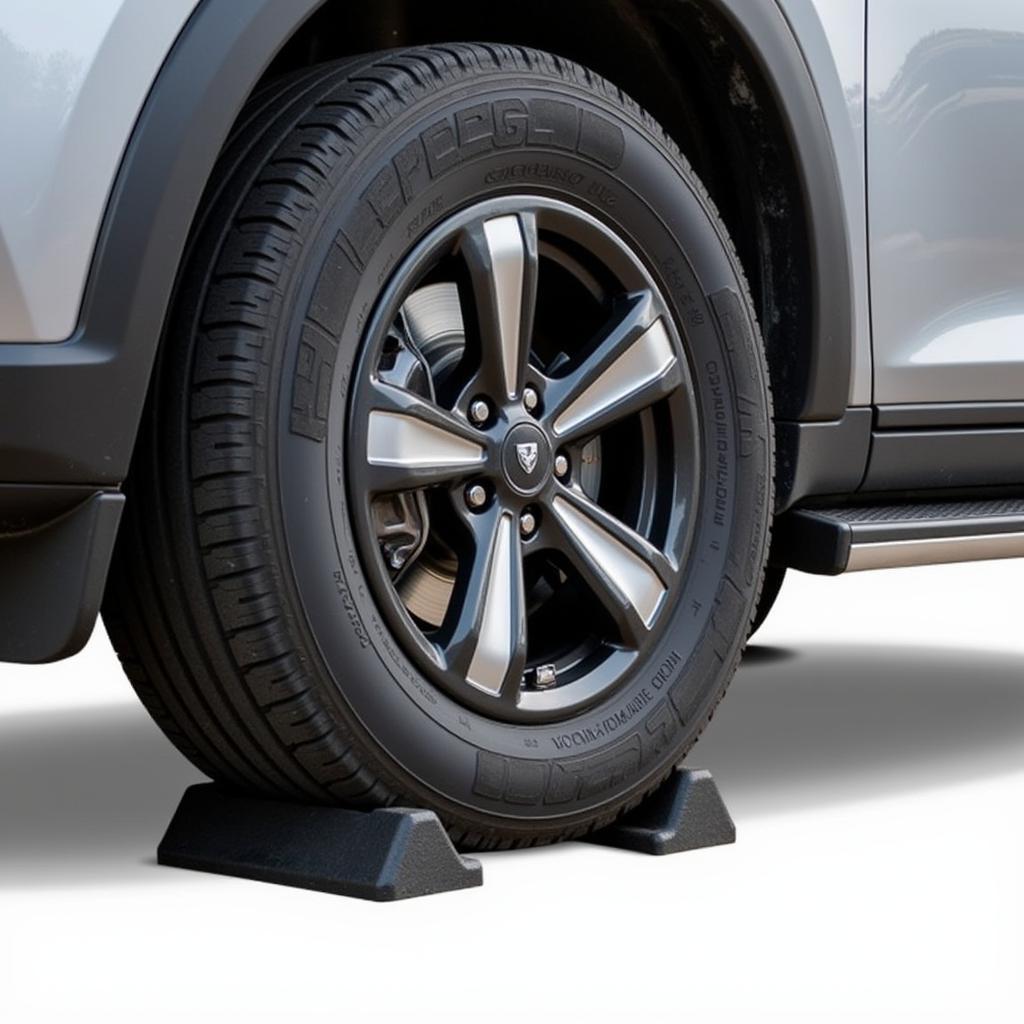If you’re reading this, chances are you’ve experienced the frustration of a faulty car alarm, specifically in a 2004 Honda Civic. It’s a common issue, but fear not, we’re here to help you navigate this often-confusing territory. This guide will equip you with the knowledge to diagnose and potentially fix your car alarm problem, saving you time, money, and unnecessary trips to the mechanic.
Understanding the Basics of Your Car Alarm System
Before we dive into troubleshooting, let’s take a moment to understand the basic components of your Honda Civic’s alarm system. This knowledge will make the diagnostic process smoother.
- Control Unit: This is the brain of the operation, receiving signals from various sensors and triggering the alarm when necessary.
- Key Fob: This handy device allows you to arm and disarm your alarm system remotely.
- Hood, Door, and Trunk Sensors: These sensors detect unauthorized entry and signal the control unit.
- Motion Sensors: Some models utilize motion sensors to detect movement inside the vehicle.
- Siren: The unmistakable sound that lets everyone know your alarm has been triggered.
Common Causes of a 2004 Honda Civic Car Alarm Malfunction
Knowing what to look for is half the battle. Here are the most common culprits behind a 2004 Honda Civic car alarm going haywire:
1. Faulty Hood, Door, or Trunk Sensors
One of the most common reasons for a car alarm to go off intermittently is a faulty door, hood, or trunk sensor. These sensors are responsible for telling the car’s computer when a door is open.
How to Diagnose:
- Inspect each door, the hood, and the trunk for any signs of damage or misalignment. Look closely at the sensor and the latch mechanism.
- If the sensor appears dirty or obstructed, gently clean it with electrical contact cleaner and a soft cloth.
Solution:
If a sensor is damaged or severely misaligned, it will need to be replaced.
2. Weak or Dying Car Battery
A weak car battery can cause all sorts of electrical gremlins, including car alarm problems. This is because the alarm system relies on a stable voltage to function correctly.
How to Diagnose:
- If your car struggles to start or you notice dimming headlights, these are tell-tale signs of a weak battery.
- Test your battery with a multimeter to check its voltage. A reading below 12.4 volts indicates a weak battery.
Solution:
- Jump-start your car and let the engine run for a while to charge the battery.
- If the problem persists, consider replacing the battery with a new one.
3. Key Fob Battery Replacement
Just like your car battery, your key fob battery can lose its juice over time, leading to communication issues with your alarm system.
How to Diagnose:
- If your key fob has a noticeably shorter range or you need to press the buttons multiple times to get a response, it’s a good sign the battery is weak.
Solution:
- Replacing the key fob battery is a straightforward process. Consult your owner’s manual for specific instructions.
4. Malfunctioning Alarm Control Unit
In some cases, the alarm control unit itself might be the culprit behind your alarm woes. This is a more complex issue, but it’s worth considering if other potential causes have been ruled out.
How to Diagnose:
- Diagnosing a faulty control unit can be tricky and often requires specialized equipment.
Solution:
- It’s recommended to consult with a qualified mechanic or an auto electrician for assistance in diagnosing and replacing a faulty alarm control unit.
5. Aftermarket Installations
If you’ve recently had any aftermarket electrical installations in your Honda Civic, such as a new stereo or alarm system, there’s a chance the wiring could be interfering with your car alarm.
How to Diagnose:
- Carefully inspect the wiring of any recent installations for loose connections, exposed wires, or signs of damage.
Solution:
- It’s best to consult with a qualified auto electrician to ensure all wiring is done correctly and safely.
When to Seek Professional Help
While this guide provides general troubleshooting steps, there are situations where seeking professional help is the safest and most effective course of action.
Consider consulting a qualified mechanic or auto electrician if:
- You’ve exhausted all the troubleshooting steps in this guide and your alarm problem persists.
- You’re uncomfortable working on your vehicle’s electrical system.
- You suspect a more complex issue, such as a faulty alarm control unit.
Preventing Future Car Alarm Problems
Prevention is always better than cure. Here are a few tips to keep in mind to minimize the chances of encountering car alarm problems in the future:
- Regularly check your car battery: Make it a habit to check your car battery’s voltage every few months, especially during colder seasons.
- Keep your key fob dry and protected: Moisture and impact can damage your key fob and its battery.
- Be mindful of aftermarket installations: Always choose reputable installers and ensure the wiring is done professionally.
Conclusion
Dealing with a 2004 Honda Civic Car Alarm Problem can be a real headache, but with a little patience and the right information, you can often diagnose and resolve the issue yourself. Remember to prioritize safety and consult a professional when needed.
If you need further assistance, feel free to reach out to the experts at AutoTipPro. Our team of experienced technicians is here to help. Call us at +1 (641) 206-8880 or visit our office located at 500 N St Mary’s St, San Antonio, TX 78205, United States.






Leave a Reply